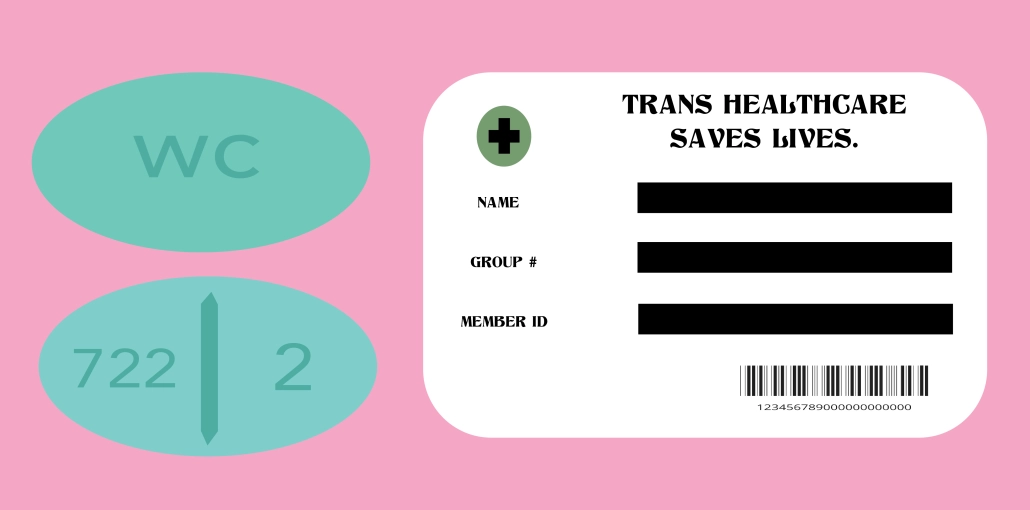LAVENDER LETTERS
USG needs to implement a transgender medical fund
Gender-affirming care is life-saving, and USG can help make it accessible.
Gender-affirming care is life-saving, and USG can help make it accessible.


Gender-affirming care is life-saving treatment. This care can look like a multitude of different procedures and medications, from hormone replacement therapy to bottom surgery. Yet, one of the biggest barriers to gender-affirming care is its financial burden.
A common gender-affirming surgery for female to male people is top surgery, which ranges from $6,000 to $10,000, on average. More expensive surgeries, such as male-to-female bottom surgery, cost, on average, $25,000. These prices make gender-affirming surgeries largely inaccessible to college students, who are often already saddled with debt.
To make this life-saving care more accessible to students here at USC, USG should follow the Graduate Student Government’s lead and implement a gender-affirming care fund. GSG’s gender-affirming care expenses fund covers one-time expenses, up to $1,000 per student per year, related to gender-affirming care and the cost of transitioning, ranging from fees for changing the name on a birth certificate to the cost of gender-affirming surgery.
Jack Drake, an undeclared sophomore, recently received top surgery, and he told me how much it had changed his life.
“It’s been a huge boost for my mental health,” Drake said. “It’s really, definitely made me happier as a person, more confident, less anxious.”
While his insurance covered a large portion of the surgery, Drake said he also saved up for two years to prepare. While Drake had enough funds for his own surgery, he acknowledged that not everyone is in a position to save enough for surgery.
“A lot of people are not only going to have to try to get it cleared through insurance, which is already a barrier, because you need to have a job that offers it,” said a sophomore majoring in politics, philosophy and economics, who requested not to be named for fear of being targeted because of their gender identity. “But also, then you need to still pay for the care that you’re being given whether or not it’s even being covered at all.”
Gender-affirming care procedures can have lengthy recovery times as they are major surgeries, and college provides a unique opportunity to more easily accommodate healing time into one’s schedule. With three weeks off for winter break and nearly three months off for summer break, the unique structure of college allows for ample time for rest and recovery.
For many transgender people, their end goal of transition is to be completely or mostly “stealth” after transition. This means that they want their transgender identity to be completely or mostly indetectable on a day-to-day basis. One of the most helpful ways to become stealth is to have all or a majority of one’s gender-affirming care finished.
“University is the first place where a lot of people go outside of their families, who may not be as accepting of them … where you can, without the eye of your parents, start getting on hormones, start going to therapy even,” the sophomore who requested anonymity said.
College presents a unique opportunity for students to access gender-affirming care while not having to worry about what their coworkers in their professional career think about their transition. Passing fully by the time one enters the professional workforce allows the transgender person to feel confident in their workplace — and USG could help achieve that.
Transitioning in college would not only help people feel more confident and comfortable in their future workplace, but also allow them to participate in college clubs and activities.
“For me, it was always kind of a debate of like, ‘Well, do I want to go to this club meeting and then I have to keep wearing my binder or do I want to go home?” Drake said. “I don’t really have to make those kinds of decisions anymore.”
Receiving gender-affirming care means that transgender people no longer have to sacrifice participating in the things they love because of their painful tucking underwear or chest binder. They will be able to fully participate in the things they love, not only making them a better student but a better future employee and a happier person.
USG has a unique opportunity to help an extremely marginalized group of students actualize their full selves. Through a gender-affirming care fund, USG would help support the futures of transgender students at USC.
Peyton Dacy is a sophomore writing about the struggles queer people face on college campuses and beyond. His column, “Lavender Letters,” runs every other Tuesday.
We are the only independent newspaper here at USC, run at every level by students. That means we aren’t tied down by any other interests but those of readers like you: the students, faculty, staff and South Central residents that together make up the USC community.
Independence is a double-edged sword: We have a unique lens into the University’s actions and policies, and can hold powerful figures accountable when others cannot. But that also means our budget is severely limited. We’re already spread thin as we compensate the writers, photographers, artists, designers and editors whose incredible work you see in our daily paper; as we work to revamp and expand our digital presence, we now have additional staff making podcasts, videos, webpages, our first ever magazine and social media content, who are at risk of being unable to receive the support they deserve.
We are therefore indebted to readers like you, who, by supporting us, help keep our paper daily (we are the only remaining college paper on the West Coast that prints every single weekday), independent, free and widely accessible.
Please consider supporting us. Even $1 goes a long way in supporting our work; if you are able, you can also support us with monthly, or even annual, donations. Thank you.
This site uses cookies. By continuing to browse the site, you are agreeing to our use of cookies.
Accept settingsDo Not AcceptWe may request cookies to be set on your device. We use cookies to let us know when you visit our websites, how you interact with us, to enrich your user experience, and to customize your relationship with our website.
Click on the different category headings to find out more. You can also change some of your preferences. Note that blocking some types of cookies may impact your experience on our websites and the services we are able to offer.
These cookies are strictly necessary to provide you with services available through our website and to use some of its features.
Because these cookies are strictly necessary to deliver the website, refusing them will have impact how our site functions. You always can block or delete cookies by changing your browser settings and force blocking all cookies on this website. But this will always prompt you to accept/refuse cookies when revisiting our site.
We fully respect if you want to refuse cookies but to avoid asking you again and again kindly allow us to store a cookie for that. You are free to opt out any time or opt in for other cookies to get a better experience. If you refuse cookies we will remove all set cookies in our domain.
We provide you with a list of stored cookies on your computer in our domain so you can check what we stored. Due to security reasons we are not able to show or modify cookies from other domains. You can check these in your browser security settings.
These cookies collect information that is used either in aggregate form to help us understand how our website is being used or how effective our marketing campaigns are, or to help us customize our website and application for you in order to enhance your experience.
If you do not want that we track your visit to our site you can disable tracking in your browser here:
We also use different external services like Google Webfonts, Google Maps, and external Video providers. Since these providers may collect personal data like your IP address we allow you to block them here. Please be aware that this might heavily reduce the functionality and appearance of our site. Changes will take effect once you reload the page.
Google Webfont Settings:
Google Map Settings:
Google reCaptcha Settings:
Vimeo and Youtube video embeds:
The following cookies are also needed - You can choose if you want to allow them:
